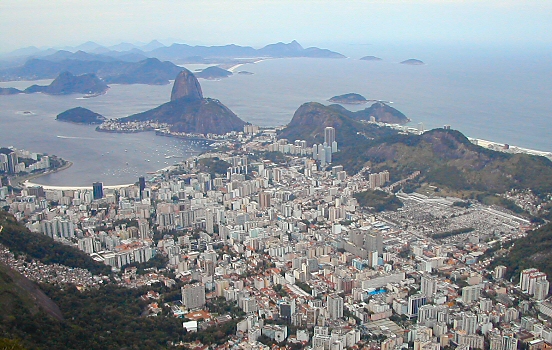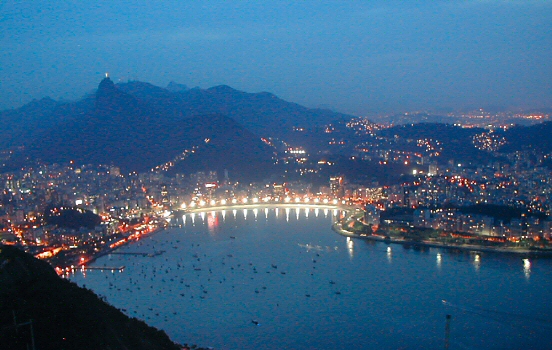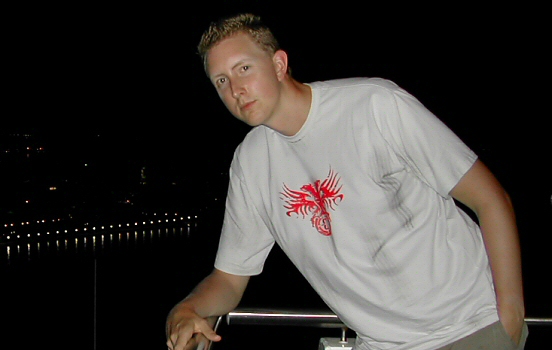Rio de Janeiro is the kind of city that shouts, sings and sweats through your shirt before breakfast. This city isn’t just alive, it pulses like a samba drumline placed on eternal repeat.
I find myself standing on top of Corcovado, the mountaintop overlooking it all. Cristo Redentor, the big guy himself is standing with arms wide open, like he’s trying to hug the whole city. At night the statue can be seen from most places in the city, as a tiny star of light in the darkness.
 The view from Corcovado.
The view from Corcovado.
Because make no mistake, there is darkness in this city. From Corcovado I see favelas spilling down the hillsides like confetti. Rio is very segregated and has to deal with violence and crime across the area. Even the SWAT teams are reluctant to enter the favelas. For a fictionalized view of the situation, have a look at the film “City of God” from last year, shot on location (no pun intended) in the poorest neighborhoods of Rio.
 Reach out and touch faith.
Reach out and touch faith.
Rio is a place of extremes. Wealth and poverty, joy and heartbreak, carnival ecstasy and everyday hustle. It’s the kind of city that grabs you by the collar, slaps you around a bit, and expects a smile from it all.
While traveling on the yellow tram going through the bohemian hills of Santa Teresa, I had a rendez-vous with the young locals who were trying to grab my backpack. A bit tense, but encounters like these always remind me of the privilege many of us take for granted, and how grateful I am to be able to make this kinds of journey at all.
 The view from Pão de Açúcar.
The view from Pão de Açúcar.
The everyday life in the favelas stand in harsh contrast to the happy beach people down at the popular beaches of Copacabana and Ipanema. The names are soaked in so much pop culture kitsch that I almost forget they’re real places. I cross the Avenida Atlântica, where the pavement patterns swirl like psychedelic fish scales, and stick my toes in the sand of Copacabana.
Copacabana is a beautiful two-mile stretch of sand shaped as a crescent, where the eastern part ends with Pão de Açúcar, the Sugarloaf Mountain. Beaches are likely the only place in the city where rich and poor can meet as equals. Everyone are drinking plastic cups full of strong caipirinhas, the national drink with the punch of a street brawler and the smile of a supermodel.
 On top of Pão de Açúcar.
On top of Pão de Açúcar.
I enter the waves at a random location on Copacabana, likely breaking a dozen informal rules. The undertow is murderous and I feel paler than Marilyn Manson as everyone is looking at the tall gringo entering their turf.
As the sun dip below the horizon, casting long shadows over the Avenida Atlântica, I leave the beach and set my sight on the top of Pão de Açúcar. I feel that I’m not just visiting Rio. I’m being devoured by it.

Comments
No comments yet.
Leave a reply